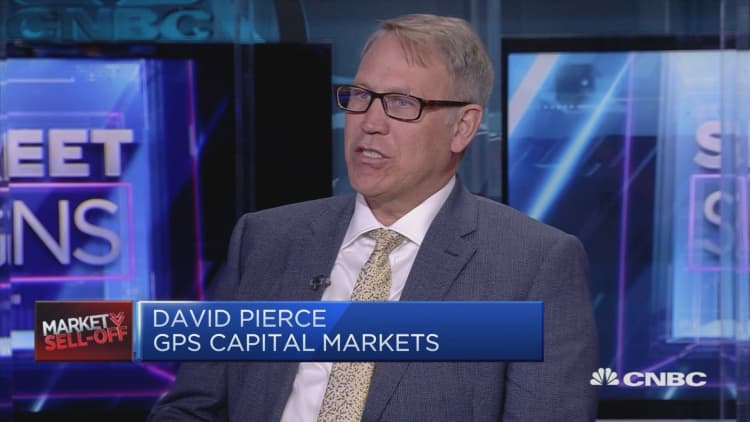
Growing coronavirus fears saw the dollar crowned the big winner in currencies last week, and analysts are expecting further rises — primarily due to a lack of alternatives.
The dollar index, which measures the greenback versus a basket of major currencies, rose by around 0.8% last week, before slipping back Friday following some disappointing economic data. On Monday the index was trading flat around 99.244, although since mid-January when the outbreak of the new coronavirus took hold, the dollar index is up around 2%.
In an outlook note entitled "The dollar way or the highway," ING strategists flagged an "alternative perspective" behind the recent dollar strength: "that investors are quintessentially lacking alternatives in the G-10 space."
"A rebound in the most exposed currencies to China may still not be a story for next week (even if risk recovers), while grim data should keep JPY (yen) and EUR (euro) unable to recover," Francesco Pesole, forex strategist at ING, said in the note published Friday. "With no alternatives in G-10, the dollar can hold on to its throne for now."
On Monday he reiterated that "the dollar remains the currency of choice in G-10 space."

JPMorgan analysts Daniel P Hui and Benjamin Shatil highlighted that although foreign exchange markets had in some ways reacted to the new coronavirus outbreak in the expected risk-on/risk-off manner, there was a "troubling development whereby some 'safe haven' currencies have been anything but."
The Japanese yen, for instance — traditionally viewed as another safe-haven currency — has been hit hard by the spread of the virus. Indeed, the strength of the dollar index last week was driven by a sharp move higher in USD/JPY. As of Sunday, Japan had 132 confirmed cases of the virus, according to the World Health Organization, which included 27 new cases compared to the day before.
On Monday, the dollar slipped 0.9% to 110.64 yen, but was still up around 0.7% over the last seven days.
JPMorgan's Hui and Shatil argued that the list of viable safe currencies had narrowed to just the Swiss franc and U.S. dollar, with the yen no longer a defensive play.

"The bias is for the default USD bid to persist on risk of further growth downgrades and chronic Japanese and European weakness," the analysts said on Friday.
Speaking to CNBC Monday, David Pierce, director at GPS Capital Markets, agreed that the safe-haven play was proving tricky for investors across different asset markets.
"It's not just the dollar, it's the Treasurys that have been very safe. And we're seeing a lot of money coming out of equity and into more long-term stable-type investments like bonds," he told CNBC's "Street Signs." "The dollar has obviously been one that has been really strong for us … People are really looking for safe havens and it's a tough find right now."
On Monday, a flight to U.S. Treasury bonds pushed yields — which move inversely to prices — sharply lower. The 10-year Treasury yield slipped to 1.37%, its lowest level since 2016.


